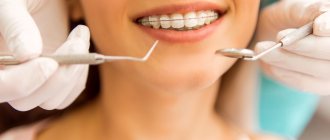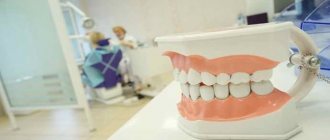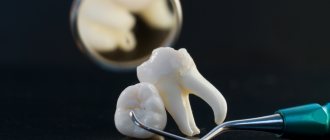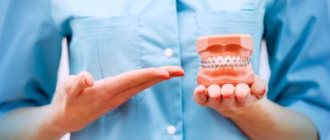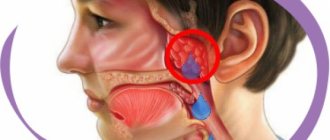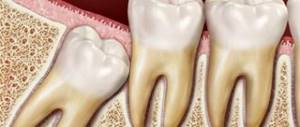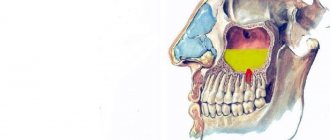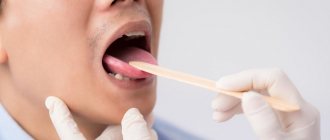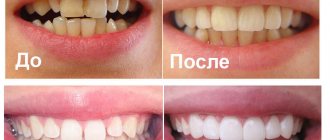Today, much attention is paid to blood cholesterol levels and its reduction.
Elevated levels of this substance are known to cause damage to the arteries due to the development of atherosclerosis. This is a narrowing of the arteries, a violation of the elasticity of blood vessels, caused by the formation of fatty (cholesterol) plaques inside the arteries. As the arteries narrow, blood cannot flow properly. If these are the vessels of the heart, a heart attack (infarction) is possible; if these are the vessels of the brain, a stroke is possible. If the process of clogged arteries has already begun, you can slow it down by making changes to your lifestyle, including your diet.
Reducing the amount of total cholesterol is necessary, but the so-called low-density lipoprotein cholesterol (LDL or “bad”) is especially important. There are a number of foods that increase and decrease levels of these dangerous lipids.
What is cholesterol?
Cholesterol is produced by the liver and is found in foods of animal origin.
Our body needs a certain amount of cholesterol to keep cells functioning and renewing themselves. But 80% of cholesterol is produced by the body itself and only 20% comes from food. Therefore, in order to reduce the level of this substance in the blood, you need to eliminate at least this 20%, reducing the intake of cholesterol from foods. It is important that your body receives healthy fats that do not affect cholesterol levels or reduce them (these are mainly vegetable oils). But the amount of saturated and trans fats needs to be reduced. It is the latter compounds that play a key role in disrupting fat metabolism and changing cholesterol levels.
If you're managing your cholesterol levels, it's important to know which foods may raise them.
Do children need to visit a gnathologist?
Childhood is characterized by muscle dysfunction, which disrupts the normal development of the child’s dental system. This is why a gnathologist is often necessary for children. To correct these problems, comprehensive treatment must be carried out, the purpose of which is to expand the jaws of a small patient (braces are often used). It is the gnathologist who will be able to detect problems with muscle tone in a child better and faster than others and prevent possible tooth curvature in the future.
Red meat
Fatty steaks and ground beef can raise LDL cholesterol levels because they are high in saturated fat. Processed red meats, such as bacon and sausage, are even worse for heart health because they are high in sodium (salt), which in excess can cause high blood pressure.
While saturated animal fats are okay in moderation, you'll be better off swapping red meat for heart-healthy fish or skinless white meat poultry. If you want steak, choose lean cuts: they contain less fat than regular beef. Limit your consumption of pork: it is a fatty meat and should be eaten no more than twice a month, choosing the leanest parts of the carcass. We wrote more about meat here.
Gnathology in prosthetic dentistry
Orthopedic dentistry studies the dental system, deformations of the musculoskeletal system, restores bone tissue and dentition, studies methods for identical reconstruction of lost teeth, that is, it deals with prosthetics. Gnathology is a very important science applicable in prosthetic dentistry, since dentures, removable or fixed, are installed for long-term use.
It is important that the patient is satisfied with the work of the orthopedic dentist and can speak and eat without experiencing discomfort or pain. Gnathology helps orthopedic dentists make calculations for the correct placement of dentures in the oral cavity; they should not impede the movement of the jaw in all directions. Dental prosthetics by an orthopedic surgeon must be accompanied by a consultation with a gnathologist.
Pasta with cheese
This tasty and beloved dish is a champion in fat content.
When preparing it, they use butter, fatty cheeses, plus pasta - this is also an excess of calories. If you add bacon, sausage, sausages or meat, the dish becomes even more dangerous. Research has shown that refined carbohydrates, such as white bread and pasta, can also raise LDL cholesterol. If you can't imagine life without macaroni and cheese, choose whole-grain spaghetti and low-fat milk with "light" cheese. Plus, eat this dish no more than 2-3 times a month.
Store baked goods
Store-bought muffins, cookies, waffles, bagels, croissants and cakes combine ingredients such as butter, sugar and white flour. In addition, cheap raw materials are often used for their preparation - trans fats and palm oil. They are considered unsafe because they increase the risk of heart disease.
If you want to pamper yourself with sweets and baked goods, make all these dishes at home, choose recipes that contain the least amount of oil, and avoid those that add margarine.
Egg yolks
The myth that eating cholesterol-rich egg yolks raises blood lipid levels has already been debunked. Scientists have determined that although eggs are high in cholesterol, they are healthy because they contain vitamins, lecithin, choline and proteins.
Today, scientists say that you can eat yolks even if you have high levels of “bad” cholesterol. Eggs are well saturated, and as a result, the incoming portion of fat is small if you compare it with the same fatty meat or baked goods.
The role of a specialist in preparing for reconstructive treatment
Modern dental clinics follow a multidisciplinary approach to preparing patients for dental prosthetics. Since the success of this complex procedure depends on many factors, it requires the coordinated work of a whole team of professionals, including a specialist in the field of gnathology. The installation of a prosthesis should not change the normal functioning of the dentofacial apparatus and lead to the patient experiencing discomfort or chronic pain. Not every clinic employs such specialized specialists as gnathologists, but every highly qualified dentist must have basic knowledge in this industry and be guided by it when selecting a treatment method for the patient.
Recommendations for correcting your diet
It's not just foods with saturated fat that are dangerous.
It has been found that sugar and refined carbohydrates increase the level of bad cholesterol in the blood, so it is important to monitor not so much the amount of fat, which is difficult to eat a lot, but the amount of carbohydrates you consume. To control cholesterol levels in your diet, follow these guidelines: • Eat no more than a couple of egg yolks per day. • Do not eat poultry skin, it contains a lot of fat. • Trim excess fat from red meat before cooking. • Limit portions of poultry and red meat to 80-100g. • Choose low-fat, part-skim cheese or cheese made with 1-2% milk. • Avoid cream-based soups. Instead, choose broth-based soups. • Use low-fat dairy products instead of full-fat cream cheese, sour cream, cottage cheese and yogurt.
What are unsaturated fats
They are considered the most beneficial for blood vessels and heart muscles, as they increase the level of “good” cholesterol, help reduce inflammation (a risk factor for heart disease), and improve the tone and elasticity of the vascular wall.
The main source of unsaturated fats is plant foods, especially those containing healthy oils. There are two types of fats: mono- or polyunsaturated. Monounsaturated fats are one of the healthiest fats for the human body. They should make up the majority of your daily fat intake. Useful source products will be:
• olive, rapeseed and linseed oil; • most nuts and seeds; • olives; • avocado; • sea fish.
Omega-3 fats are another type of polyunsaturated fat. They help protect against heart disease by lowering triglyceride levels and preventing abnormal heart rhythms (arrhythmia). Helps control blood pressure and reduce the risk of heart attack. To get the most benefit from these foods, eat them 2-3 times a week. The body cannot produce omega-3 fats on its own, so the only sources are foods. The best among them are sea fish: salmon, tuna, mackerel, herring, sardines. Other sources that contain lower amounts of omega-3 fats but are also beneficial:
• flaxseed; • walnuts; • rapeseed oil.
How is an appointment with a doctor?
An appointment with a gnathologist is not much different from an appointment with other specialists. First of all, the doctor asks the patient in detail about his complaints and finds out the history of the disease. Particular attention is paid to the presence of other chronic diseases in the patient. Since dysfunction of the dental system is closely related to the nervous system, the presence of injuries, and dental diseases, the doctor dwells on these aspects in more detail.
It is mandatory to examine the oral cavity and evaluate the condition of the facial part of the skull and spine. To make an accurate diagnosis, the specialist prescribes additional instrumental and laboratory research methods that will help carry out differential diagnosis and identify the main cause of the patient’s complaints.
Sometimes it may take some time to make a final diagnosis, and the patient will not limit himself to one visit to the gnathologist. However, the use of modern technologies greatly simplifies the diagnostic process. After the cause of the disorders has been found, the doctor selects a set of the most effective treatment measures for the patient.
Fiber and cholesterol
Everyone should have 25-35 grams of fiber in their diet every day. But, unfortunately, the diet of most people does not contain this amount. Dietary fiber is a type of carbohydrate that is not digested. As fiber passes through the digestive tract, it affects nutrient absorption. Its sufficient presence helps reduce the level of “bad” cholesterol. A fiber-rich diet helps control blood sugar levels, promote regular bowel movements, and prevent gastrointestinal diseases. It also helps you control your weight. There are two types of dietary fiber: soluble (viscous) and insoluble.
For maximum health benefits, your diet should include a variety of high-fiber foods. White bread, pasta and fast food are low in fiber. The cleaning and refining process removes the outer husk (bran) of the grain, which reduces the amount of fiber remaining. The best sources of fiber are whole grains, fruits, vegetables and legumes (dried beans, lentils, peas).
Soluble fiber (pectin) absorbs water, swells and turns into a gel. It helps lower total and bad cholesterol levels by binding to bile in the intestines and removing excess cholesterol through body waste. Soluble fiber is found in:
• oat bran and oats; • barley; • legumes (eg dried beans, lentils and peas); • flaxseed; • apples, bananas, pears and citrus fruits; • Brussels sprouts, broccoli, cabbage, sweet potatoes, zucchini. Insoluble fiber promotes bowel regularity, increases bowel volume and softness, helps regulate weight, and prevents many gastrointestinal disorders. Sources of insoluble fiber include: • wheat bran and whole grain bread; • vegetables with veins and rough skin; • nuts.
In addition, drink plenty of water, it helps fiber work, provides fluid to the body and reduces appetite.
